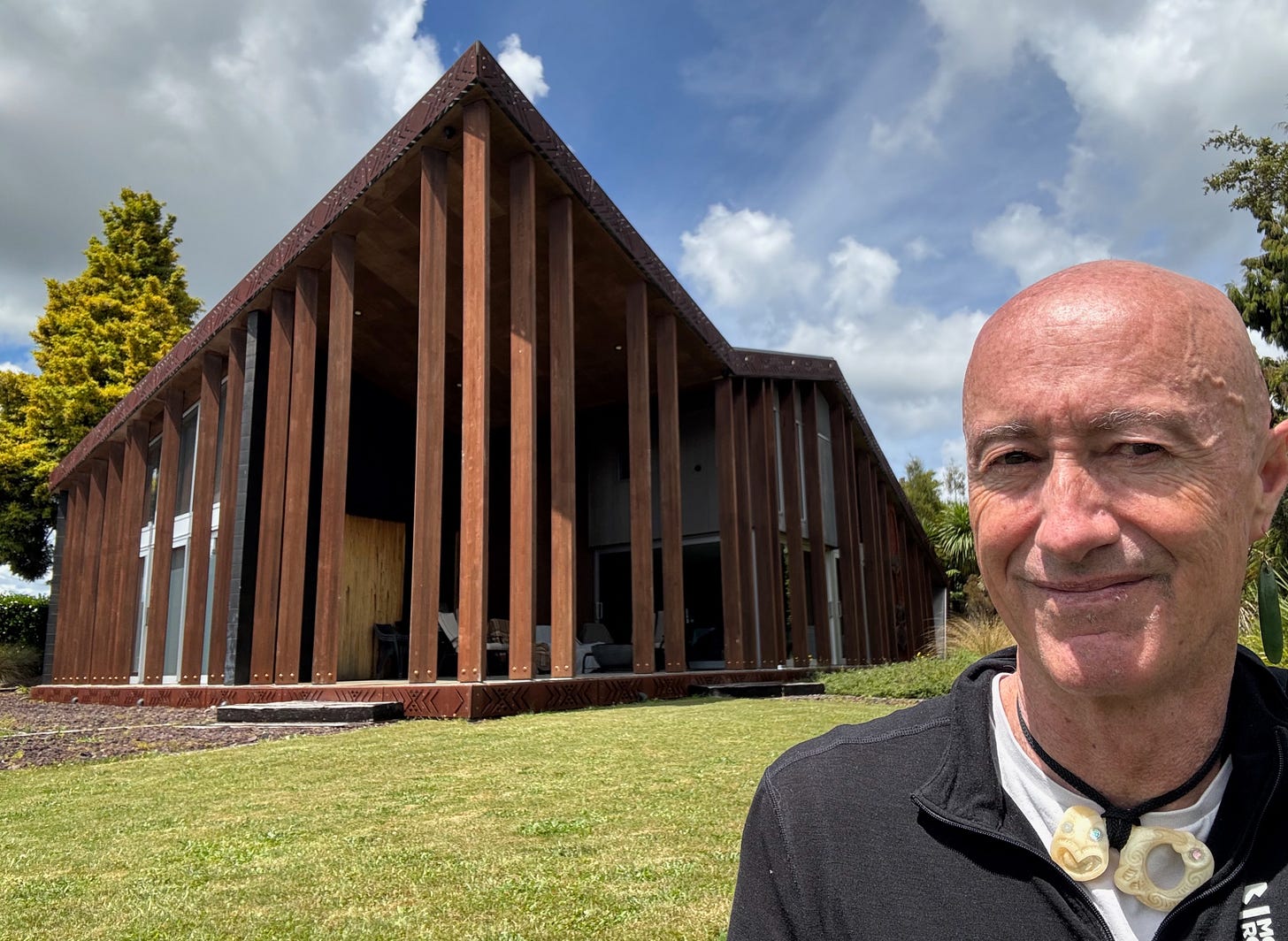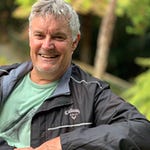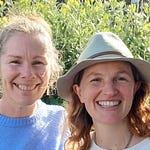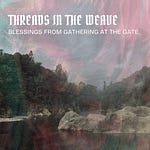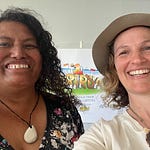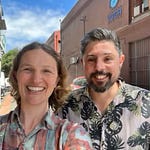I’m excited to share this conversation with Paul Tapsell (Te Arawa, Tainui) whose book Kāinga: People, Land, Belonging inspired my focus on homes and kāinga this year.
It was very special to be invited to Paul’s ancestral home in Tapsell Road, Rotorua, where we met in the beautiful architecturally designed space shown in the photo above. Paul and his whānau envisioned and built this new home to replace the crumbling old house, built by their father. Back before the days of potatoes and colonisation, this site was a kumara garden and a foundation for the local economy. Now it sits amongst suburban houses, holding precious threads of culture and acting as a hub for the community as well as a home.
Historic amnesia and the illusion of our harmonious bicultural society
In our conversation, Paul painted a picture of a cultural divide ‘as wide as the grand canyon’, which we pretend doesn’t exist.
“On one hand colonisation has dispossessed 780 kāinga communities of their economic base and on the other hand an incoming settler community from Great Britain has come to control that economic base but are living in what my academic mentor used to call historic amnesia.”
Paul spoke about his great great grandmother who was bayoneted to death by British soldiers who were later given their ancestral land to farm for free. He described a Māori community, still living in poverty on the land they were forcibly removed to in 1869, while Pākeha farmers make millions on the land they were dispossessed from.
Somehow, we have manifested a story of a harmonious bicultural society - the nation we call New Zealand. But this illusion is preventing us from facing the scale of trauma and disconnection and finding ways to heal.
Paul’s hope, in writing the book, was to bring to light the forgotten stories and help bridge the cultural divide.
Chasing pinpricks of light in the dark
I was struck by Paul’s approach to facing these hard truths.
“I problematise everything, almost to the point of depression, until I’m surrounded by this darkness. Then I step back and see where the little pricks of light are coming through - just these little pinpricks. Like going down a tunnel, I chase that light and see where it takes me.”
Paul has found pinpricks of light in the fact that young Māori, whose whānau have lived in cities for generations, are wanting to reconnect with their ancestral kāinga. When that relationship between tangata and whenua is restored, there is hope for healing and true leadership. Young Māori give Paul hope.
He also has hope in Pākeha and tauiwi. He shared a story of two Pākeha farmers who fell in love with the whenua and have dedicated their lives to restoring the health of the waterways. They are now working with Paul to connect with an impoverished Māori community living downstream, in the hope of sharing the ecological wealth they’ve helped to restore.
“I think most reasonable non-Māori citizens of this country, if they understand the history, are more likely to respond proactively and create that bridge across the canyon and meet halfway.”
We’re all complex. Let’s stop judging and listen to each other.
Paul and I shared stories of ancestors who crossed the cultural divide and how their decisions have shaped our lives now.
My great grandmother was Māori, born in Te Kaha in Te Moana-a-Toitehuatahi (Bay of Plenty). She moved to Auckland, married a Lebanese businessman, had a family then died. From that point our family has been disconnected from our Māori whakapapa. I have inherited material wealth through the family business but none of the wisdom of my Māori ancestors.
Paul’s grandmother came from Ireland where generations of her family had been dispossessed of their land by the English. Her brothers and sisters settled in Auckland where their families now own large chunks of the waterfront! Paul’s grandmother married a Māori man, found belonging with her new whānau and embraced their culture as her own. Apparently she was known as “the black sheep” of the family. From his Māori elders Paul inherited precious ancient taonga which he is striving to preserve.
It struck me that the hau kāinga who stayed with their whenua and preserved the taonga have carried a huge burden for us all. They have taken a massive hit to protect these lifelines, which are now hanging by a thread.
I found our conversation incredibly helpful for making sense of my own complex feelings and my role now. It’s not about pointing fingers or laying blame, it’s about being prepared to learn and listen, to feel the darkness and follow the pinpricks of light.
Find out more about Paul’s projects and research
https://www.takarangi.co.nz/
https://www.maorimaps.com/
Music credit
Waiata koauau ki Te Papa-i-ōuru




